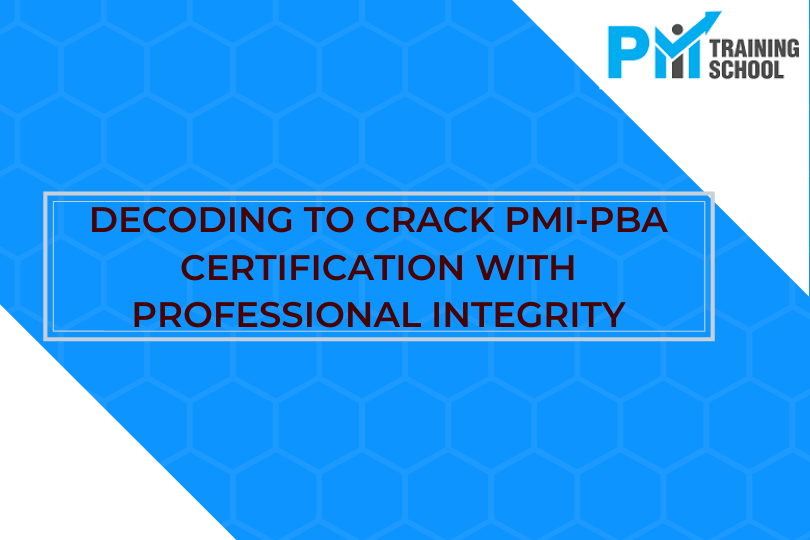PMI Professional in Business Analysis (PMI-PBA®) is a new certification when compared to others offered by the Project Management Institute. In spite of being young, it is one of the fastest expanding courses in Business Analysis across the globe.
In a paper presented by PMI titled “Business Analysis: Leading Organizations to Better Outcomes” in 2017, it stated that organizations with a high-level maturity in business analysis manifest above-average performance in all key organizational progress metrics, including:
- Management of individual projects (62% versus 29%),
- Strategy implementation (66% versus 21%),
- Financial performance (69% versus 45%),
- Organizational agility (40% versus 14%).
Now that we are acquainted with the significance of PMI-PBA® certification, let’s jump into examining some of the strategies for cracking it!
Read the Foundational Standards guide by PMI
PMI® Guide to Business Analysis
It doesn’t matter if you are already certified with IIBA-CBAP® or have thoroughly read the Business Analysis Body of Knowledge (commonly known as the BABOK from the IIBA), you have to study this guide. Well, how are both different? As mentioned in our previous article, the PMI-PBA® seems to be aligned more towards the business analysis role in programs and projects. You should be able to apprehend the collaborating features and overlapping functions of the project manager with the business analyst.
Go through the Exam Outline
PMI-PBA Examination Content Outline
The five domains comprising in the exam are as follows:
- Needs Assessment,
- Planning
- Analysis (includes Elicitation),
- Traceability and Monitoring, and
- Evaluation.
This makes you aware of the proportion of questions that are likely to appear from each domain on the examination, which would be helpful for scheduling study time based on the emphasis required for each domain. The outline also lists key knowledge areas and skills you are expected to know.
Another crucial recommended reading
PMI® Business Analysis for Practitioners: A Practice Guide
It just gives you a good acumen into what the PMI perceives as the rational approach to business analysis. It’s a pretty quick read too! It incorporates all of the domains of the PMI® Guide to Business Analysis. Take special care in getting to know the different techniques highlighted in both guides. Some of the graphical methods like Scatter Diagrams and Pareto Charts are not the usual analysis tools frequently used. You should familiarize yourself with the reasons for their usage and some of the associated terminologies. Also, don’t miss out on reading the definitions from the glossaries of the guides.
Buy a study guide containing sample questions
A good guide usually contains question banks in each domain and includes access to online question banks for a certain period of time.
Identify the type of learner you are
If you are a kinesthetic learner, it is suggested that you study while in movement. You could walk on the treadmill or ride in the swing while reading. When in motion, kinesthetic learners think better apparently. If you are a visual learner, you read the content, visualize the relationship between different ideas and translate them during the exam. If you are an auditory learner, you could copy the content, paste it on a text-to-speech app and learn on the go.
What do we offer in our Exam Prep Training?
PM Training School, Auckland provides PMI-PBA® Examination Preparation Training which includes:
- PMI® Credential holder instructor-led classroom and live online training
- High-quality course content by RMCLS that is fully aligned with PMBOK® Guide – Sixth Edition
- 35 Hours Exam Prep training using RMCLS and PM training school’s State of the Art training modules
- Certificate of Completion of Training (required as eligibility criteria)
- Convenience – Classes are available at flexible hours both during Weekends and Weekdays
- Apart from the tips mentioned in the article above, we offer more insightful tricks and techniques to pass the examination in the first attempt
- Free Mock Questions and Exercises as a part of the training
- Free One-hour Personal Mentorship Session with our Instructor.
- Tea and lunch in the morning and afternoon
- Assistance for Exam Application and Audit
Contact us for more information.



Recent Comments